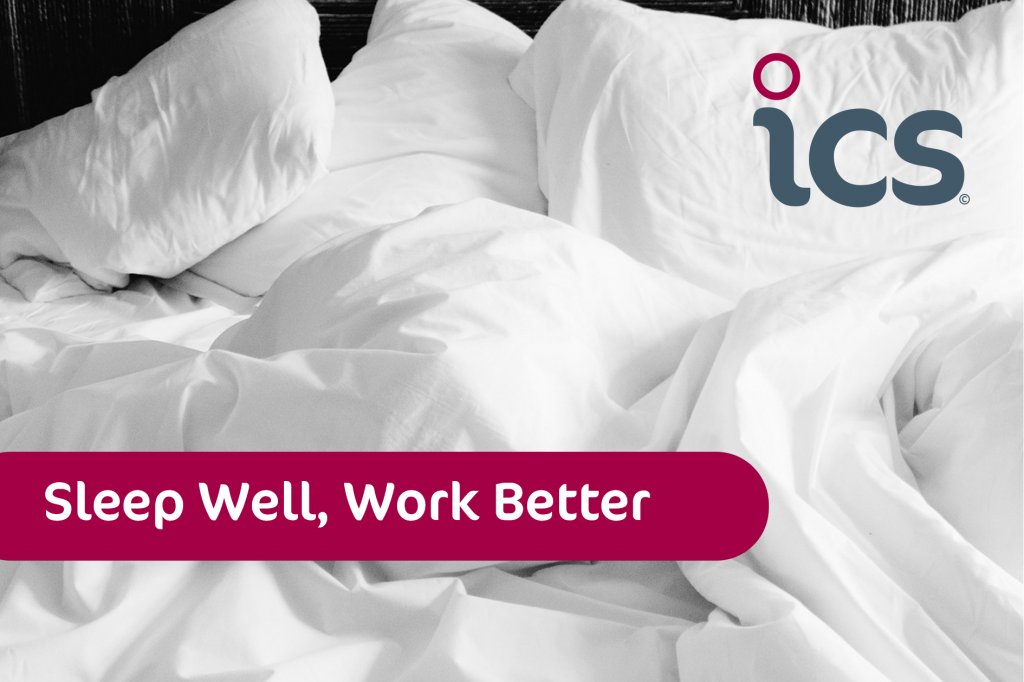Freelancers and business owners have a lot to think about. From delivering a project to submitting a VAT return, any number of things can be playing on your mind. We also know that you don’t perform at 100% when you’re tired. So how can we avoid work stresses affecting our sleep?
Put work apps on the second page of your phone
The dreaded red circle filled with unread notifications can distract us even if we don’t click on it. Move all work related apps onto the second page of your home screen so you are only checking them when you’re ready to. Also turn off push notifications!
Send emails to yourself to pick up in the morning
We all know the feeling, winding down after a hard day and realising you forgot to order paper, schedule a post or reply to an email. To stop yourself thinking about it all night and it affecting your sleep, send yourself an email and pick it up in the morning. This is a better method than writing it down because let’s face it, if we don’t remember the thought, we’re unlikely to remember the note.
Read fiction books
Reading is a popular method of relaxing and for good reason! It has been shown to improve sleep (six minutes of reading reduces stress by 68%) and distract our mind from the stresses of the day. It’s a great alternative to technology as the blue light emitted from devices such as TVs and tablets disturb our body’s melatonin production, making us feel alert when we want to switch off. By reading fiction we can be fully engrossed, without applying it to real life scenarios and reminding ourselves of work.
‘Do Not Disturb’ mode to avoid late night calls and emails
The late night pinging of a mobile next to the bed is a sure fire way to disrupt our sleep, not to mention the temptation just to have a quick look at who it’s from. Do Not Disturb mode is the answer. You can set it so notifications are silenced between set times while the phone is locked. Don’t worry about missing that urgent call off your mum, you can allow calls from specific numbers or enable repeated calls so if someone tries to ring you twice in three minutes, the second call isn’t silenced.
Wind down rituals
Having a routine when you get home from work is as important as having a morning routine. When I have my first coffee of the day I know it’s time for work. Why? Because I’ve had a coffee before work every day since I was 16. Find one or two things you can do every night (going for a run, reading a book, taking a bath) and it won’t be long until your body learns it’s time for sleep.
Join clubs and interest groups (even if you don’t have the energy)
The last thing I want to do after a long day at work is to get changed and head back out. But having interests and friends outside of the work environment is a great way to create work/life balance and give your brain a break. Joining a sports club is a great way to tire yourself out both mentally and physically but any interest will do, join a book club, take up chess or, my favourite, go to wine tastings.
Leave the office over lunch
Getting fresh air is an easy way to clear work stress. The work culture in many offices means eating your lunch at your desk or in a staff room if you’re lucky. By leaving the office during this time you break up your day and avoid working while you’re eating. Admittedly, the UK weather isn’t the best for al fresco dining but even sitting in a local coffee shop, library or pub can offer a refuge from work chat, meaning you’ll be refreshed and ready to go when you’re back.
Cycle to work
Cycling to work is a great way to bookend the day, with the ride home giving you a chance to archive your thoughts of the day and burn off that post-work caffeine buzz. In a survey of 2,500 cycle commuters, 89% said cycling helped them to switch off from the working day whilst those who drove were the most stressed, even compared to public transport users!
Get changed
Whether you’re working from a home office or commuting to work what you’re wearing will dictate how you feel. Getting changed as soon as you get home signals the end of the work day and the start of leisure/family time. You wouldn’t play rugby in golf shoes so why would you relax in your work clothes?
Don’t stress!
Easier said than done I know but laying in bed not sleeping is the worst way to deal with our worries. If this is happening, don’t stress about stressing, get up and go to another room until you feel tired. This means our brain only associates being in bed with sleeping, not the 2am brainstorming sessions.
Further reading:
The seven most calming colours for your bedroom according to Feng Shui – Talented Ladies Club
How to find your brain’s off switch – The Telegraph
5 New Year’s resolutions for freelancers & small businesses – FreeAgent
10 Motivation Tips For Freelancers Who Work From Home – Forbes




















